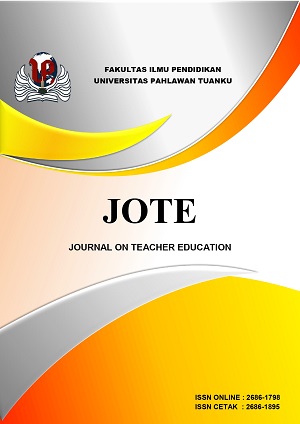Pemberdayaan Remaja dalam Pencegahan HIV/AIDS melaui Life Skill Education di Kabupaten Tuban
Abstract
Adolescents face highly complex problems. Emotional and psychological pressures can lead to deviations from prevailing social norms in the community, such as environmental issues, reproductive health concerns, promiscuous sexual behavior, abortion, and sexually transmitted diseases, including HIV/AIDS. The number of HIV cases in Tuban Regency increased from 53 cases in 2021 to 163 cases in 2022. The aim of this community service program is to improve adolescents’ knowledge and life skills in preventing HIV/AIDS. The methods used included lectures, discussions, games, assignments, and demonstrations, targeting adolescents in Kembangbilo Village, Tuban Regency. The results showed that the average knowledge score on HIV/AIDS prevention life skills before the educational intervention was 42.6, increasing to 65 after the intervention. The average life skills score for HIV/AIDS prevention before the intervention was 53.5, increasing to 68.5 afterward. Empowering adolescent peer educators proved to be highly effective in enhancing life skills for HIV/AIDS prevention. In this era of advanced communication systems, it is crucial to equip adolescents with life skills to prevent HIV/AIDS.
Keywords
Full Text:
PDFReferences
Darmawati, I., Dharmansyah, D., Lindayani, L., & Alfyani, R. (2021). Life skill remaja dalam pencegahan HIV/AIDS. Jurnal Keperawatan Komprehensif (Comprehensive Nursing Journal), 7(1), 66–73. https://doi.org/10.33755/jkk.v7i1.198
Dinkes Provinsi Jatim, (2023). Profil Kesehatan Provinsi Jawa Timur 2022. Dinkes Provinsi Jatim
Khofiyah, Nidatul, Islamiah, & Fauzi, B. (2018). Pengaruh edukasi tentang HIV/AIDS terhadap sikap pencegahan HIV/AIDS pada remaja. Jurnal Riset Kebidanan Indonesia. 2 (1), 16-20
Gusti A.I, dkk. (2015). Pengaruh Penyuluhan HIV / AIDS Terhadap Peningkatan Pengetahuan Tentang HIV/AIDS. Jurnal Ilmu Kebidanan. 3 (1), 19-26
Rahmawati, dkk. (2015). Paparan media terhadap perilaku berisiko remaja . Jurnal Ilmu Kebidanan, 3 (2), 69-76.
Gonçalves M.J. (2023). The Influence of Social Media on Adolescent Sexual Behavior: A Retrospective Analysis. Jurnal Kesehatan dan Sains Asia, 2 (9), 227-235.
Mahesha Abdi, dkk. (2024). Mengungkap Kenakalan Remaja: Penyebab, Dampak, dan Solusi. PRIMER: Jurnal Ilmiah Multidisiplin 2024, 2 ( 1 ), 16-26
Yusuf R. I &, Andini H. (2021). Efek Interaksi Penggunaan Media Sosial dan Pengetahuan Kesehatan Reproduksi terhadap Perilaku Seksual Beresiko Remaja. Jurnal Pekomnas special issue, 6, 35-45
Saputra W, dkk. (2025). Pengaruh Media Sosial Terhadap Perilaku Remaja. Journal Comprehensive science, 4 (1). 18-27
Sumakul V, dkk. (2024). Edukasi Life Skill Pada Remaja Dalam Pencegahan HIV/AIDS Di SMK Negeri 1 Tomohon . Jurnal Pengabdian kepada Masyarakat MAPALUS. 2( 2 ), 56-64
Ramadani, Ibrahim, Mirwanti & Maulana. (2024). Social media use, knowledge, attitudes, and risky sexual behavior of HIV transmission: A survey among boarding school adolescent students in Indonesia. Belitung Nursing Journal, 10 (3), 322-331. doi: 10.33546/bnj.3244
DOI: https://doi.org/10.31004/abdira.v5i4.1145
Refbacks
- There are currently no refbacks.
Copyright (c) 2025 Wahyuningsih Triana Nugraheni, Binti Yunariyah, Su'udi Su'udi

This work is licensed under a Creative Commons Attribution-ShareAlike 4.0 International License.





1.png)
